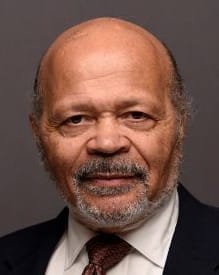
by Oscar Blayton, Esq.
There are few social conundrums within the Black community today that are as troubling as what to do about the persistence of the N-word in music, comedic presentation and informal discourse among Black friends.
This word elicits extreme anger within the Black community when uttered by a white person but is viewed as an acceptable, or even comical expression when spoken by a Black person. The word is ubiquitous in much of today’s rap music but is taboo in rap music for anyone other than a Black performer. This seemingly double standard fuels debates within, as well as across, racial lines. And it is time we try to make sense of the use of this word as a social phenomenon within the Black community.
Without delving too deeply into linguistics and psychosocial studies, we need to understand why the use of this word within the African American community remains as such a resilient but racially charged social phenomenon.
When examining any racial issue in America, we must begin with the oppressive nature of the relationship between the races. The initial contact between the people who were to become African Americans and those who were to become European Americans was one of asymmetric violence, with the former being the disadvantaged group.
Under conditions of abject oppression, the prime concern of the oppressed is survival – both physically and mentally. One tool for the survival of people in wretched social circumstances is carnivalesque release, or the celebration of life in the face of hardship.
The origin of this concept dates back to medieval Europe, when Christian peasants, facing the fasting of the Lentenseason leading up to Easter, would have a carnival as a last hurrah to get them through the miserable meatless days ahead. The term “carnival” literally means “without meat.” This tradition is carried on today in the various Mardi Gras festivals around the world. But it is not only within the context of Lenten deprivation that carnivalesque release exists. Throughout history, people have used this type of release to blunt the hardships of life, both great and small.
For 400 years, America has treated Black folk miserably, and it has only been through carnivalesque release that we have survived with any degree of sanity. Langston Hughes put it most succinctly in the title of his famous book of short stories, “Laughing To Keep From Crying.”
For many years, use of the N-word in certain settings and within certain circumstances has been one form of thisrelease. Its use is celebratory in one sense, recognizing that we are still here and still surviving. This is done by taking the poison of race hatred out of a term that was so painfully weaponized against us for centuries. As Sanya Osha of the University of Cape Town wrote in his recent article for Salon.com, using the N-word in a carnivalesque way is one form of “taking venom from a snake.”
It is within this context that we can understand why this word that flows so easily in much of African American discourse is the most vile term when it escapes from within its Black psychosocial framework and is used by a person who is not African American.
Just as the medieval carnival with its cathartic release was born out of the humanity of the culture of peasant folk, many of the African American traditions arose from the need to express our humanity and celebrate our existence in a joyous shout. Our dance, our blues, the use of the N-word in certain circumstances and among certain people, are all forms of asserting our humanity in the face of oppression.
And just as not all aspects of the medieval carnival were meant to be shared with the feudal lords who were mocked during the revelry, not all aspects of African American culture are meant to be shared with the dominant culture in this country which it resists.
We have no problem sharing soul food and the blues, but the N-word is not for sharing. Without the shared experience that Black folk have with race hatred and racial injustice, it is unlikely that this term is being used for a liberatingrelease. And socially, it is like a loaded gun – in the wrong hands, it can cause great harm.
Americans of all races have many things in common and share many experiences. But the unique, self-identified groups that make up people of color in this country each have a distinctive culture, history and American experience. It is a matter of respect to acknowledge and value those distinctions. One distinct experience of Black folk is theemancipating release derived from the use of the N-word within certain contexts.
Whether you approve, disapprove, like, dislike or hate that this word is used in any context – until there is no longer any need for the carnivalesque release that it provides, it is likely to continue to be with us.Oscar H. Blayton is a former Marine Corps combat pilot and human rights activist who practices law in Virginia.
Oscar H. Blayton, Attorney At Law

